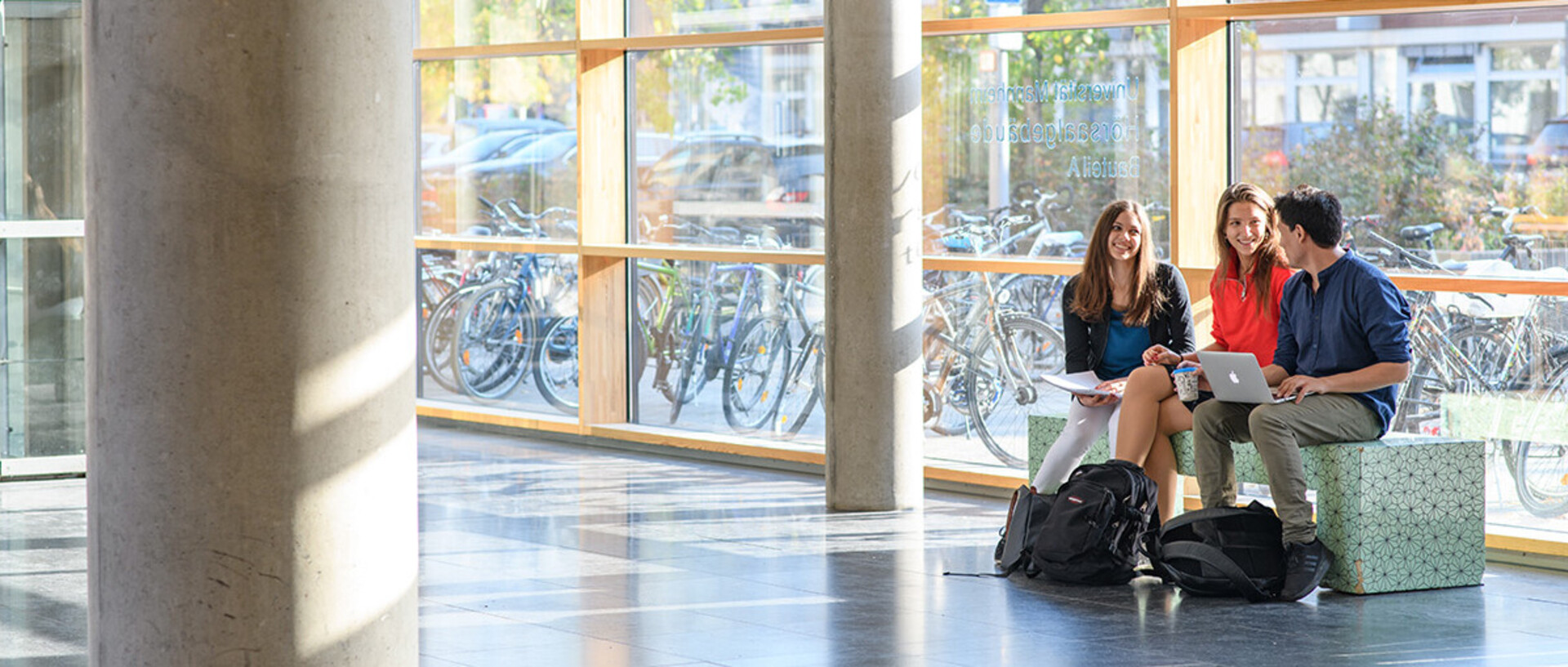Knowledge Graphs (HWS 2022)
Note: This lecture replaces the old lecture IE 650 Semantic Web Technologies.
Important: Portal2 initially showed a wrong time and place for this lecture. The lecture takes place on Tuesdays, 3:30 pm, in B6 30-32, E-F, room 209.
Course Description
Knowledge graphs are a universal means of data representation which can be consumed by humans and machines alike, and is therefore a key ingredient in many modern data-driven systems and AI applications, which often need knowledge about the domain they operate in, and/
This course gives an introduction to the underlying standards of knowledge graphs, including knowledge representation and query languages, as well as logical inference. More specifically, it covers the following contents:
- History of Knowledge Graphs and the Semantic Web
- Representation Languages (XML, RDF, RDF Schema, OWL)
- Knowledge Modeling: Ontologies, Linked Data, and Property Graphs
- Data Quality in Knowledge Graphs
- Logical Reasoning in RDF and OWL
- Commercial and Open Source Tools and Systems
Besides theoretical lectures, the course also consists of hands-on exercises and a practical project in which you build a small knowledge graph backed application.
Exam Review
In case you want to review your second exam of HWS 2022, please write a mail to Bianca Lermer until Friday, 10 March 2023.
Prerequisites
- Java or Python programming skills are required to pass this course!
- Preferably, some experience with software development
- To pass the course you have to fulfill the following requirements:
- Pass the final exam (you have to get a 4.0 or better in the exam to pass this course)
- Successfully work in a group on a project idea (programming!), present the results and write a report
- The final grade is the grade achieved in the final exam, however, the project is a mandatory requirement to pass the course.
Lecturers
- Lecture: Heiko Paulheim
- Practical Exercise: Sven Hertling
Dates
- Lecture: Tuesday, 15:30 – 17:00, room B6 30-32, building part E-F, 209
- Exercise: Friday, 12.00 – 13.30, room B6 A1.04
Schedule
| Week | Tuesday | Friday |
| 12.09.2022 | Lecture: Introduction | Exercise: Introduction |
| 19.09.2022 | Lecture: RDF | Exercise: RDF |
| 26.09.2022 | Lecture: RDFS | Exercise: RDFS |
| 03.10.2022 | Lecture: Linked Data, Semantic Web Programming | Exercise: Linked Data, Semantic Web Programming |
| 10.10.2022 | Lecture: SPARQL and other Query Paradigms | Exercise: SPARQL, Kick off Group Projects |
| 17.10.2022 | Lecture: Public Knowledge Graphs | Exercise: Public Knowledge Graphs |
| 24.10.2022 | Lecture: Labeled Property Graphs | Exercise: Labeled Property Graphs |
| 31.12.2022 | Public holiday | No exercise |
07.11.2022 | Lecture: OWL Part 1 | Exercise: OWL Part 1 |
| 14.11.2022 | Lecture: OWL Part 2 | Exercise: OWL Part 2 |
| 21.11.2022 | Lecture: Knowledge Modeling | Exercise: Knowledge Modeling |
| 28.11.2022 | Lecture: Data Quality and Interlinking | Exercise: Data Quality and Interlinking |
| 05.12.2022 | Project Presentations |
Important dates for the group projects:
- Sunday, October, 16th, 23:59: Submission of project proposals
- Sunday, December 11th, 23:59: Submission of final reports
Adminstrative Details
For attending the course, please register for the lecture in Portal 2 (link to lecture and exercise). The course is limited to 30 participants. Course allocation is done in Portal2. There will be no “first come – first serve”. Students in higher semesters will be preferred, equally ranked students will be drawn randomly.
Materials and Exercise Sheets
Material
Lecture slides
- 13.09.: Introduction (PDF, 4 MB)
- 20.09.: RDF (PDF, 2 MB)
- 27.09.: RDF Schema (PDF, 2 MB)
- 04.10.: Linked Open Data & Programming (PDF, 2 MB)
- 11.10.: SPARQL and other Query Languages (PDF, 2 MB)
- 18.10.: Public Knowledge Graphs (PDF, 7 MB)
- 25.10.: Labeled Property Graphs (PDF, 2 MB)
- 08.11.: OWL Part 1 (PDF, 669 kB)
- 15.11.: OWL Part 2 (PDF, 3 MB)
- 22.11.: Knowledge Modeling (PDF, 5 MB)
- 29.11.: Data Quality and Linking (PDF, 16 MB)
Further material (slides, exercise solutions, videos, and other additional materials) will be made available in the corresponding ILIAS group.
Literature (suggested reading list):
- Aidan Hogan et al.: Knowledge Graphs. Morgan & Claypool, 2022, available online
- Tim Berners-Lee, James Hendler and Ora Lassila. The Semantic Web. Scientific American, 284 (5), pp. 34–43, 2001
- Pascal Hitzler, Markus Krötzsch and Sebastian Rudolph. Foundations of Semantic Web Technologies. Chapman & Hall/
CRC, 2009 - Pascal Hitzler, Markus Krötzsch, Sebastian Rudolph and York Sure. Semantic Web: Grundlagen. Springer, 2007 (German)
- Allemang and Hendler (2008): Semantic Web for the Working Ontologist. Verlag Morgan Kaufmann.
- Antoniou and van Harmelen (2004): A Semantic Web Primer. MIT Press.
- Heath and Bizer (2011): Linked Data: Evolving the Web into a Global Data Space. Free online version.
Course Evaluations
Course evaluations from previous semesters:
